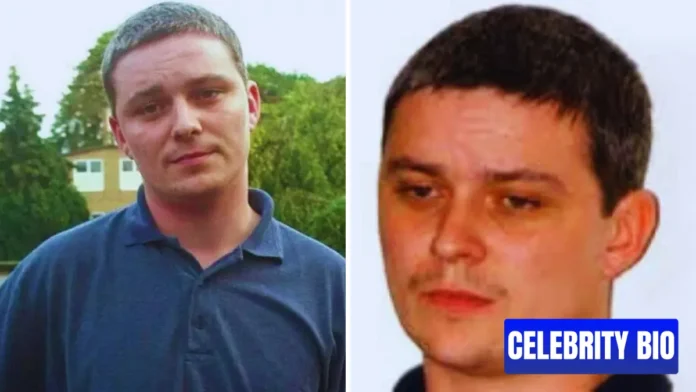Introduction
Ian Huntley remains a name forever etched in Britain’s darkest criminal history. The summer of 2002 changed the sleepy Cambridgeshire village of Soham into the focus of one of the country’s most harrowing criminal investigations. Two young girls, Holly Wells and Jessica Chapman, both aged ten, vanished mysteriously, igniting a frantic search that gripped the nation. As the horrific truth unfolded, the public’s shock deepened, not just at the loss of innocent lives but at the betrayal of trust by the man at the heart of the tragedy: Ian Huntley.
This article explores the complex and disturbing background of Huntley’s life, the events leading to the murders, the painstaking investigation and trial, and the significant repercussions that reshaped child protection laws and community vigilance in the UK. It is a story about loss, justice, and the hard lessons a nation was forced to learn.
Early Life of Ian Huntley
Born in August 1974 in Grimsby, Lincolnshire, Ian Huntley’s early years were marked by a mixture of ordinary family life and signs of social difficulty. Though his upbringing seemed typical at first glance, those around him later spoke of his struggle to form healthy relationships and his increasingly controlling tendencies during adolescence.
School reports noted a boy who could be both charming and manipulative, displaying early behavioural patterns that suggested underlying emotional problems. Huntley often found himself at odds with peers and authority figures, hinting at a personality troubled by insecurity and a need for control.
As he grew older, his employment history was unstable. He took on various manual jobs but rarely held a position for long. His relationships were similarly troubled, characterised by jealousy and possessiveness. By the late 1990s, these issues had compounded, and he sought a fresh start away from Grimsby.
Moving to Soham and the Role at Soham Village College
Huntley’s relocation to Soham in 2001 seemed a chance to rebuild. He secured work as a caretaker at Soham Village College, a role that would provide him with regular access to children and the school community. His girlfriend, Maxine Carr, also worked in education as a teaching assistant at a nearby primary school.
Together, they blended into village life, presenting themselves as a respectable couple. Huntley’s outward appearance was that of a reliable and friendly employee, well-liked by colleagues and parents alike. Yet beneath this facade, his darker tendencies remained hidden, unnoticed by those who trusted him. This duality would later deepen the shock felt by the community.
The Disappearance of Holly Wells and Jessica Chapman

On 4 August 2002, the village was plunged into crisis when Holly Wells and Jessica Chapman failed to return home after playing outside. The girls, known for their close friendship and shared enthusiasm for football, were last seen walking through Soham in the early evening, sparking a frantic search.
Local residents, police officers, and volunteers scoured the surrounding countryside, while national media outlets broadcast images of the missing girls, appealing for information. Huntley appeared publicly concerned, even participating in search efforts and speaking to journalists — a grim irony that would later haunt his image.
The Investigation and Evidence
As the investigation unfolded, police began to focus on inconsistencies in Huntley’s account of his movements on the day of the disappearance. Forensic tests found fibres and other evidence linking the girls to Huntley’s home and vehicle.
Maxine Carr’s involvement complicated matters further. She provided a false alibi to the police, claiming she had been with Huntley at the time of the girls’ disappearance. This deception eventually led to her being charged and convicted of perverting the course of justice.
With evidence mounting, Huntley was arrested and charged with the murders, turning the case from a missing persons enquiry into a criminal trial that would captivate the nation.
The Trial of Ian Huntley
Huntley’s trial began in 2003 and quickly became a media sensation. The prosecution laid out a compelling case, detailing how Huntley had lured the girls to his home before killing them. Witnesses testified about Huntley’s strange behaviour and conflicting statements.
Despite his attempts to claim accidental death, the jury found Huntley guilty of two counts of murder. The judge handed down a life sentence with a minimum term of 40 years, reflecting the severity of the crime and its impact on the victims’ families and community.
Life in Prison
Since his conviction, Huntley has been held in high-security prisons. He has reportedly been the target of attacks by other inmates and placed in protective custody at times. Various reports indicate periods of self-harm and attempts to manipulate media narratives from behind bars.
While incarcerated, Huntley has sought to challenge aspects of his sentence and prison conditions but with little success. His notoriety ensures that he remains one of the UK’s most reviled prisoners.
The Impact on the Community and the UK
The Soham murders left a deep emotional scar on the village and the country as a whole. Memorials for Holly Wells and Jessica Chapman continue to serve as poignant reminders of the lives lost.
Nationally, the case raised urgent questions about how someone with Huntley’s history could have been employed in a school environment. It forced schools, councils, and government agencies to overhaul safeguarding policies to better protect children.
Legal and Social Repercussions
The subsequent Bichard Inquiry identified failures in the background checking system that allowed Huntley’s past to remain undiscovered. Its recommendations led to the introduction of tighter vetting procedures, eventually forming part of the Vetting and Barring Scheme, now administered through the Disclosure and Barring Service (DBS).
These reforms have since become central to the UK’s efforts to prevent similar tragedies by ensuring that those working with children are thoroughly vetted.
Media Portrayal and Public Memory
The Soham case has been the subject of numerous documentaries, books, and dramatizations, each exploring different facets of the tragedy and its aftermath. Public sentiment remains overwhelmingly hostile towards Huntley, whose name is synonymous with a profound breach of trust.
The case is regularly referenced in discussions about child protection and the responsibilities of institutions entrusted with safeguarding.
Controversies and Ongoing Discussions
Despite the overwhelming evidence and conviction, the case has not escaped conspiracy theories and misinformation, often spread on social media. Some question the official narrative, though these claims lack credible support.
There is also ongoing debate about the ethics of media coverage concerning notorious criminals, particularly regarding how much attention should be given to them versus their victims.
Conclusion
Ian Huntley actions irrevocably altered lives and reshaped national policy. His story is a grim reminder of the dangers hidden beneath seemingly ordinary surfaces and the critical importance of robust safeguarding.
While his name remains associated with horror and betrayal, the lasting legacy lies in the reforms and heightened vigilance that followed, ensuring better protection for future generations. Remembering Holly Wells and Jessica Chapman, their lives cut tragically short, is the most important tribute we can pay.
FAQs
Who is Ian Huntley and what did he do?
Ian Huntley was convicted of murdering two ten-year-old girls, Holly Wells and Jessica Chapman, in Soham, Cambridgeshire, in 2002.
Where is Ian Huntley now?
He is serving a life sentence in a high-security UK prison.
What happened to Maxine Carr?
Maxine Carr was convicted of perverting the course of justice after providing a false alibi for Huntley. She served 21 months in prison.
What changes did the Soham murders bring to UK law?
The case led to stricter background checks for those working with children and the introduction of the Vetting and Barring Scheme.
How old was Ian Huntley when the crimes took place?
He was 28 years old.
Has Ian Huntley ever spoken publicly from prison?
He has given limited interviews that sparked public outrage and condemnation.

